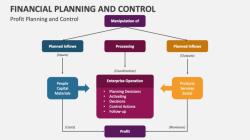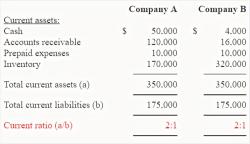Do credit unions check your credit score?
Yes, credit unions, like banks and other financial institutions, may check your credit score when you apply for various financial products or services, such as loans, credit cards, mortgages, or even when opening a new deposit account in some cases. The extent and purpose of credit score checks by credit unions may vary depending on the specific financial product you are applying for and the credit union's policies.
Here are some key points to know about credit unions and credit score checks:
Loan Applications: When you apply for a loan from a credit union, whether it's a personal loan, auto loan, or mortgage, the credit union will typically check your credit score as part of their underwriting process. Your credit history and score help them assess your creditworthiness and determine the terms and interest rates they can offer you.
Credit Cards: Credit unions that issue credit cards will often perform credit checks on applicants to evaluate their creditworthiness. The terms and credit limits offered may be influenced by your credit score.
Membership Account: Some credit unions require a credit check as part of their membership application process. However, many credit unions have more lenient membership requirements compared to traditional banks, and a less-than-perfect credit score may not necessarily disqualify you from becoming a member.
Savings and Checking Accounts: Opening a basic savings or checking account at a credit union typically does not require a credit check. These accounts are designed for depositing and managing funds, and your credit history is not a significant factor.
Credit Unions' Policies: Credit unions have their own policies and criteria for credit checks, and they may vary from one credit union to another. Some may place more emphasis on credit history, while others may consider other factors, such as income and employment stability.
Credit Union Membership: Keep in mind that to become a member of a credit union, you may need to meet specific eligibility criteria, such as living in a certain area, working for a particular employer, or belonging to a particular organization. These criteria are unrelated to your credit score.
It's important to be aware of your credit score and credit history, as they can impact your ability to access credit and the terms you're offered. You can check your own credit score regularly through credit reporting agencies, and it's advisable to review your credit reports for accuracy.
If you have concerns about your credit score or need assistance in improving it, some credit unions offer financial counseling and resources to help their members manage their finances and credit effectively.
Credit Unions and Credit Score Checks: What You Should Know
Credit unions are not-for-profit financial institutions that are owned by their members. They typically offer a variety of financial services, including checking and savings accounts, loans, and credit cards.
Credit unions do not always check your credit score when you open a checking or savings account. However, they may check your credit score when you apply for a loan or credit card.
There are a few reasons why credit unions may check your credit score:
- To assess your creditworthiness: Credit unions want to make sure that you are a good credit risk before they lend you money. They will use your credit score to help them make this decision.
- To set interest rates: Credit unions may use your credit score to set the interest rate on your loan or credit card. A higher credit score typically means a lower interest rate.
- To prevent fraud: Credit unions may check your credit score to help prevent fraud. For example, they may check your credit score to see if there are any unusual debts or accounts on your report.
Credit Unions' Credit Check Policies: Insights and Details
Credit unions' credit check policies vary. Some credit unions may check your credit score for all new members, while others may only check your credit score if you apply for a loan or credit card.
Some credit unions may also use alternative data to assess your creditworthiness. This data may include your bank account history, rent payments, and utility bills.
If you are concerned about your credit score, you can ask the credit union about their credit check policy. You can also get a free copy of your credit report from each of the three major credit bureaus once a year.
Membership Considerations: How Credit Unions Assess Creditworthiness
When assessing creditworthiness, credit unions consider a variety of factors, including:
- Credit score: Your credit score is a number that represents your credit history. It is based on your payment history, credit utilization, and length of credit history.
- Income: Credit unions want to make sure that you have enough income to afford your loan payments.
- Debt-to-income ratio: Your debt-to-income ratio is the amount of debt you have compared to your income. Credit unions want to make sure that your debt-to-income ratio is not too high.
- Employment status: Credit unions want to make sure that you have a steady job.
- Assets: Credit unions may consider your assets when assessing your creditworthiness. For example, they may consider your savings account balance or your home equity.
If you are interested in joining a credit union, you can check their website to see if they have any membership requirements. You can also contact the credit union directly to ask about their membership requirements.
Here are some tips for improving your credit score:
- Make all of your loan payments on time and in full.
- Keep your credit utilization low. Credit utilization is the amount of credit you are using compared to your total available credit.
- Pay down your debt.
- Don't open too many new credit accounts in a short period of time.
- Keep your credit history long and positive.
Improving your credit score can take time, but it is worth it in the long run. A good credit score can help you qualify for loans and credit cards with lower interest rates. It can also help you get a lower insurance premium and rent a better apartment.










